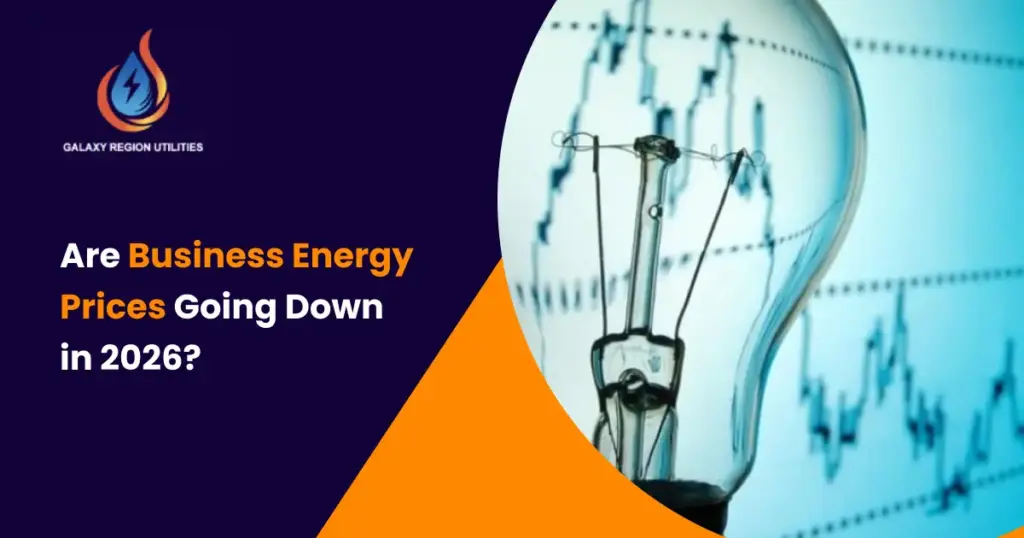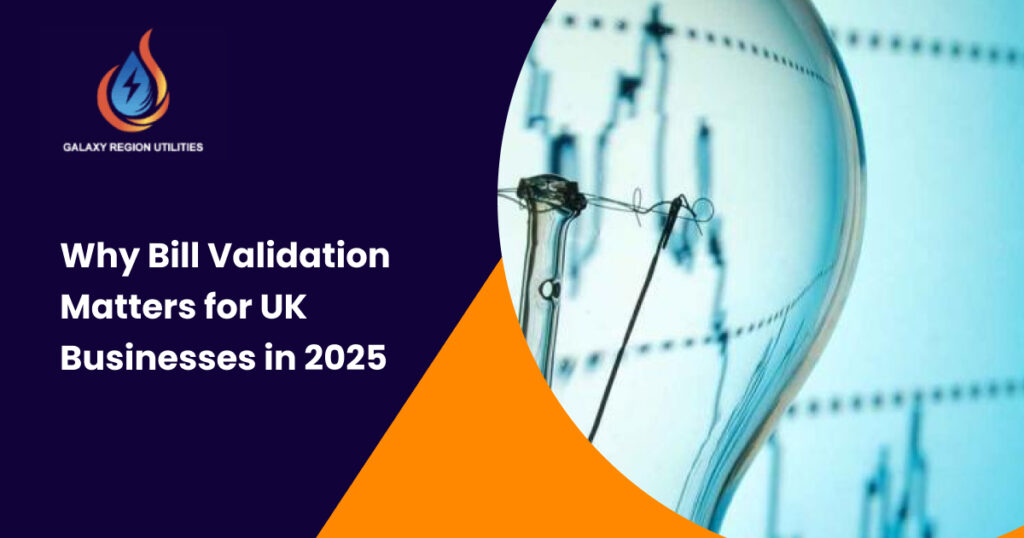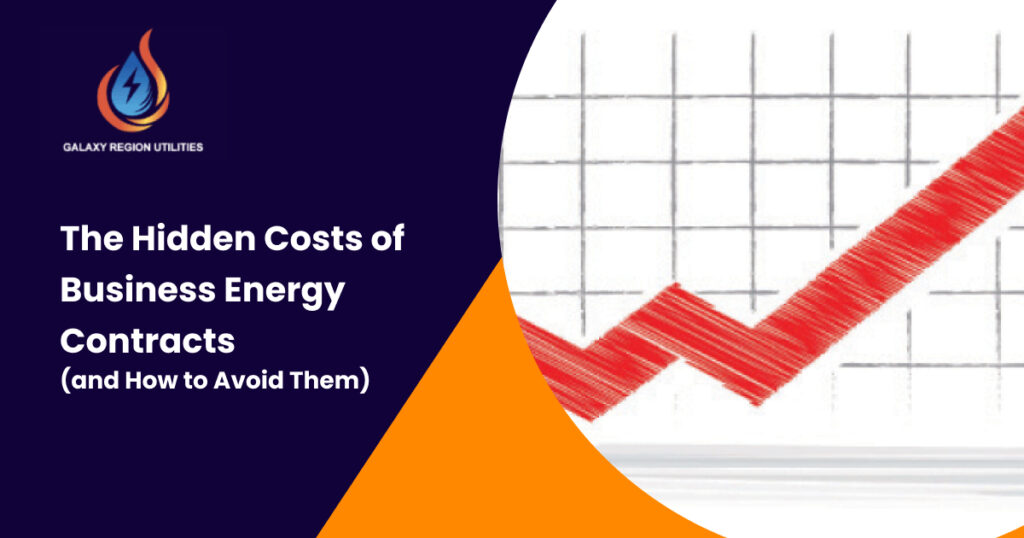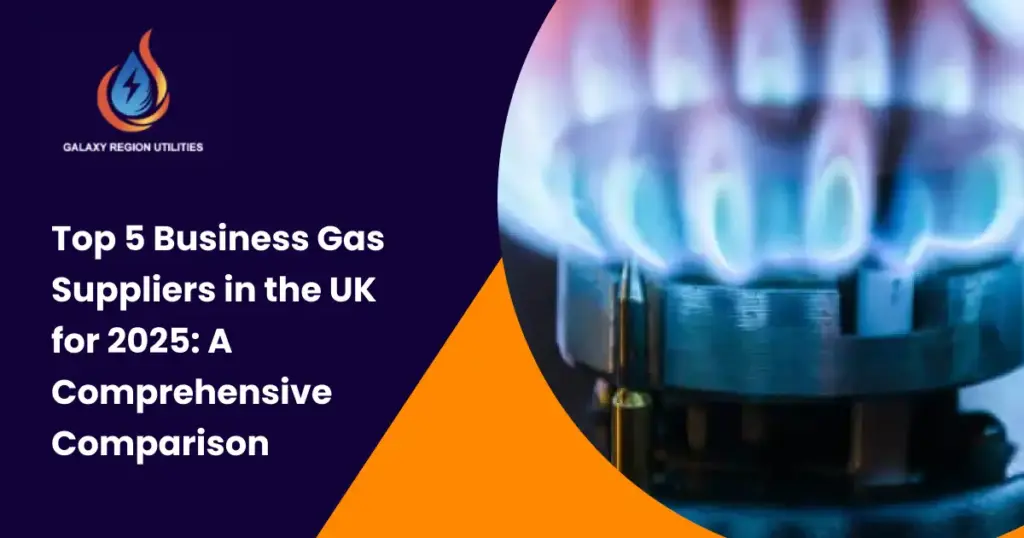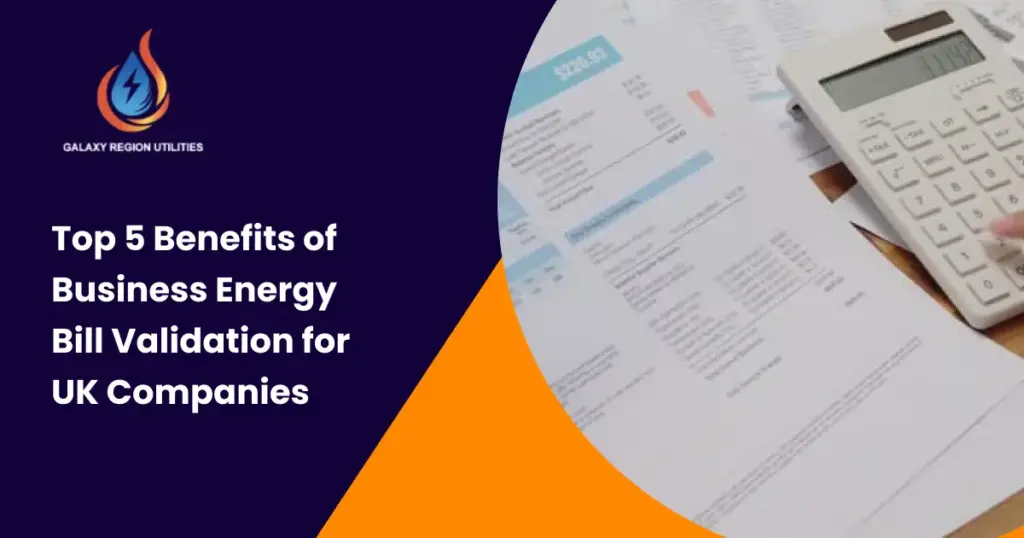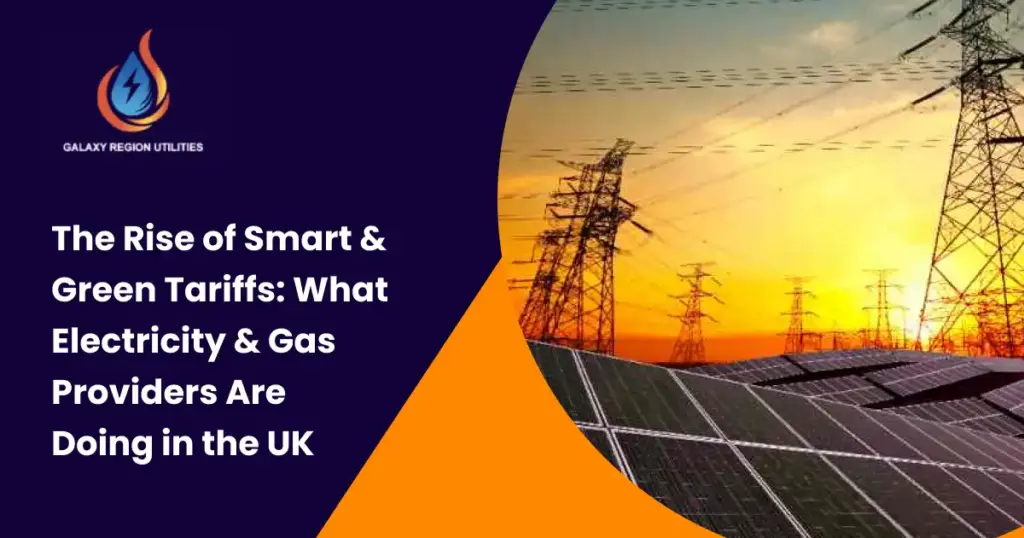Are Business Energy Prices Going Down in 2026? The Ultimate Forecast for UK Businesses
The question on every CFO’s and small business owner’s mind as we navigate this year is simple: Are business energy prices going down in 2026? After years of “unprecedented” volatility, the market finally seems to be catching its breath, but “stability” in 2026 doesn’t look like it did in 2019. At Galaxy Region Utilities, we’ve analyzed the latest wholesale data and policy shifts to bring you the definitive guide to managing your utility overheads this year. Executive Summary: The 2026 Outlook In short: Yes and No. While wholesale gas prices have dipped by approximately 6% entering Q1 2026, non-commodity costs (the fees for the wires, pipes, and government levies) are rising. For most businesses, the “unit rate” may look better, but the total bill requires a strategic approach to see real savings. 1. The Wholesale Market: Why Gas is Falling but Electricity is Stubborn To understand if your bill will drop, we have to look at the two halves of the energy coin. Wholesale Gas Trends Wholesale gas has entered 2026 with a sigh of relief. Increased storage capacity across Europe and stabilized global supply chains have brought prices down from their 2022-2024 peaks. Current Trend: Natural gas spot prices are averaging significantly lower than last winter. The “Galaxy” Insight: If your business relies heavily on gas for heating or manufacturing, 2026 is a prime window to look at long-term fixed-rate contracts to lock in these lower baseline rates. The Electricity Imbalance Electricity is a different story. Even with softer gas prices, electricity unit rates in the UK have seen a slight upward pressure (approx. 3-5%) due to: Grid Modernization: The UK is overhauling its grid to handle more renewables. Increased Demand: The AI and data center boom is putting a massive strain on the national grid. 2. The Rising “Hidden” Costs: Non-Commodity Charges By 2026, non-commodity charges now make up nearly 60% of a typical business electricity bill. Even if the price of the “energy” goes down, these fees are going up: Transmission & Distribution: The cost of moving energy to your premises. Government Levies: Schemes like the Nuclear Regulated Asset Base are now being reflected in commercial bills. Standing Charges: Ofgem has confirmed increases in daily standing charges for 2026 to cover supplier operating costs and bad debt across the industry. Pro Tip from Galaxy Region Utilities: Don’t just look at the unit rate (p/kWh). Always check the Total Cost of Ownership (TCO) including standing charges. Our bill validation service specifically hunts for overcharges in these “hidden” sections. 3. Industry-Specific Forecasts: How 2026 Impacts Your Sector The 2026 energy landscape is far from a “one size fits all” scenario. While the overarching theme is a shift from commodity-driven pricing to infrastructure-driven costs, the actual impact on your bottom line depends heavily on your industry’s consumption profile. Whether you are searching for affordable energy suppliers in the UK or trying to navigate the latest business energy grants in the UK, your sector’s specific challenges will dictate your strategy. SMEs, Retail, and Hospitality: Managing the “Standing Charge Squeeze” For small-to-medium enterprises (SMEs), the 2026 forecast brings a specific challenge: the rising cost of staying connected. Small businesses are historically the most vulnerable to standing charge increases, and this year is no exception. With the National Energy System Operator (NESO) confirming that TNUoS (Transmission Network Use of System) charges are set to rise significantly from April 2026, many shopkeepers and office managers will see their daily fixed fees climb, even if they reduce their actual energy usage. The 2026 Challenge: For a low-usage boutique or a café, the “fixed” part of the bill could represent up to 30% of total costs. Galaxy Region Action Plan: We recommend moving away from standard variable tariffs immediately. Look for “SME-specific” low standing charge tariffs. In January 2026, the regulator introduced new rules requiring suppliers to offer at least one tariff with a lower standing charge. While this often means a slightly higher unit rate (p/kWh), it is the most effective way for low-consumption businesses to stabilize their monthly overheads. Manufacturing and High-Intensity Users: The Era of “Flexible Procurement” For large-scale industrial users and manufacturers, 2026 is the year to abandon the three-year fixed-rate contract. Market conditions have returned to a state where Flexible Procurement—once a tool reserved only for the largest corporations, is now accessible and essential for mid-sized factories. The “Block Buying” Advantage: Instead of gambling on a single day’s market rate for the next 24 months, Galaxy Region Utilities helps manufacturers buy energy in “blocks” or “tranches.” This allows you to take advantage of the wholesale gas price dips we are seeing in early 2026 while protecting your budget from sudden geopolitical spikes. The British Industrial Competitiveness Scheme (BICS): High-intensity users should check their eligibility for the BICS and the British Industry Supercharger, which can reduce electricity network charges by up to 90% for sectors like steel, chemicals, and glass. This alone can slash your total energy spend by 25%. Data Centers and Tech Hubs: Demand-Side Response With the 2026 rollout of Market-wide Half-Hourly Settlement (MHHS), tech-heavy businesses can finally turn their high consumption into a financial asset. By participating in Demand-Side Response (DSR) schemes, your business can actually be paid to shift non-essential processes (like server cooling or bulk data processing) away from peak times. No matter your sector, the key is to stop being a passive consumer. By leveraging industry-specific business energy grants in the UK and securing affordable energy suppliers in the UK tailored to your profile, you can ensure that 2026 is remembered as the year your business gained control over its utility future. 4. How to Secure the Best Rates in 2026 Waiting for prices to “hit bottom” is a dangerous game in the 2026 energy market. While the extreme spikes of the mid-2020s have subsided, market volatility can return with a single geopolitical event or a cold snap in the North Sea. For Galaxy Region Utilities clients, the goal isn’t just to find a low
Are Business Energy Prices Going Down in 2026? The Ultimate Forecast for UK Businesses Read More »

